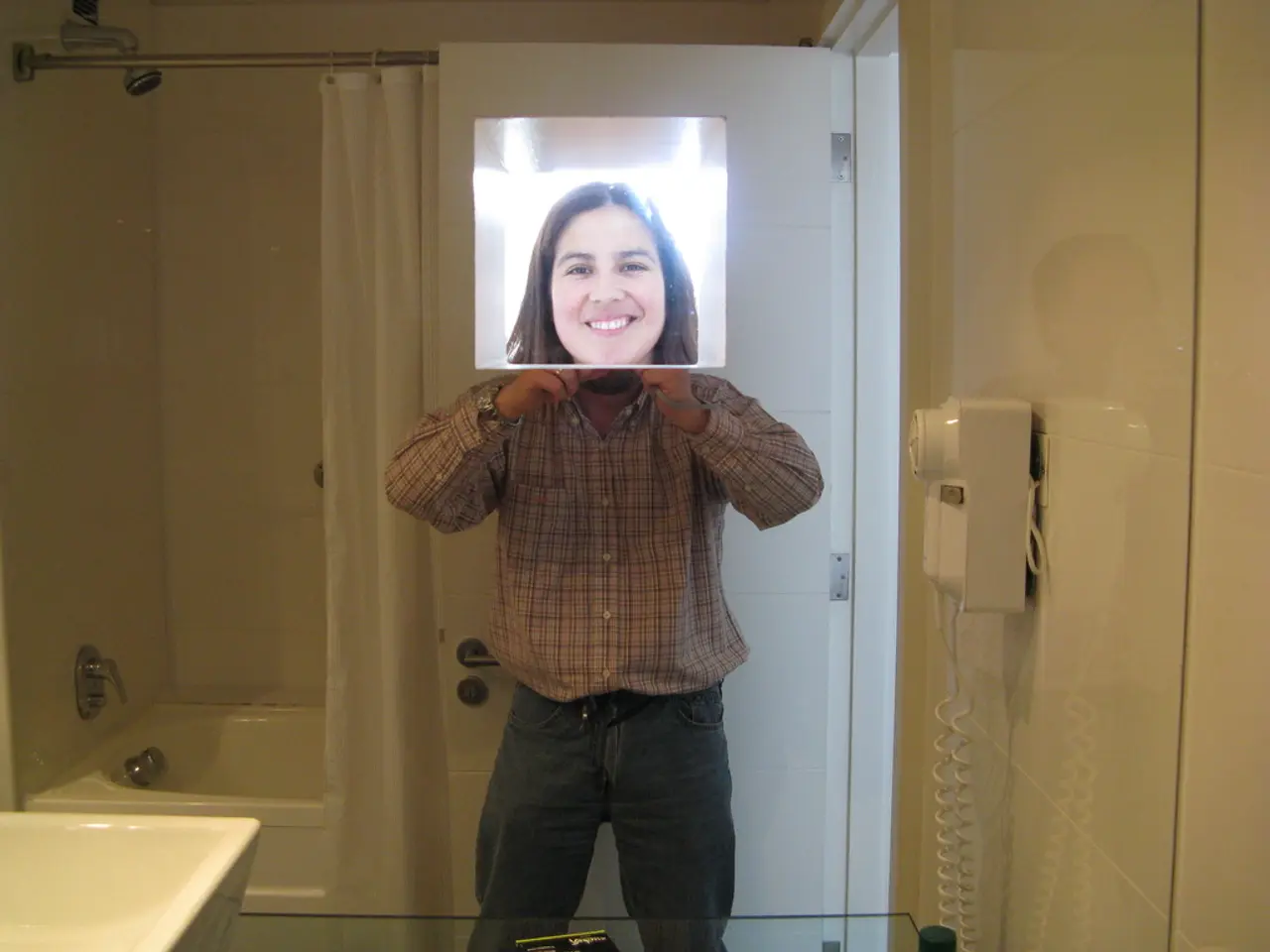Struggling with a Shower Due to Depression: Practical Advice and Strategies for Overcoming
In the battle against depression, simple tasks like showering can often seem overwhelming. Fatigue, low energy, and decreased motivation can make maintaining personal hygiene practices a struggle for many individuals. However, clinical psychologist Roberta Ballard, who provides online therapy for creative professionals and artists experiencing anxiety, depression, and burnout, explains that effective strategies can help overcome these challenges.
Breaking tasks into smaller, manageable steps is one such strategy. For instance, breaking down showering tasks into micro-tasks such as getting out of bed, walking into the bathroom, turning on the shower, taking off clothes, getting into the shower, getting wet, using soap, rinsing, towel off, and getting back in bed, can make the task seem less daunting.
Using visual aids and reminders can also be beneficial. Calendars, task boards, phone alarms, or sticky notes can help cue personal hygiene routines, reducing mental clutter. Establishing structured routines with support, whether through executive function coaching or therapy, can help accommodate depressive symptoms and executive dysfunction.
Prioritising and adjusting expectations is another crucial factor. Focusing on a few essential hygiene activities, accepting “good enough” instead of perfection, and gradually building consistency can help combat overwhelm and low motivation. Leveraging external accountability, such as sharing goals with a trusted person or coach, can provide motivation and prevent isolation in managing hygiene tasks.
Incorporating pleasurable elements and self-care around or after hygiene tasks can also reduce avoidance and bring positive reinforcement. Investing in pampering bath products or using a shower seat and movable showerhead can make the showering process more enjoyable.
If someone has had symptoms of depression for 2-3 weeks, they should consider making an appointment with a mental health professional or their primary care doctor. It's essential to remember that seeking professional help, including therapy for depression and executive dysfunction, can address underlying motivation issues, and medication under clinical guidance may also assist.
If someone is experiencing suicidal feelings, they should talk with a medical professional immediately. Taking care of oneself, including personal hygiene, can send an important message of worthiness to a depressed individual. However, negative thoughts about self-worth can make showering seem less important.
It's crucial to remember that overcoming challenges in personal hygiene requires patience, understanding, and self-compassion. Together, these strategies create structure, decrease overwhelm, and foster manageable habits supporting personal hygiene despite executive dysfunction and depression. Resources for crisis support include the 988 Lifeline, Crisis Text Line, Befrienders Worldwide, and local emergency services.
- Evidently, depression can make even simple tasks seem overwhelming, such as managing personal hygiene practices.
- Clinical psychologist Roberta Ballard suggests breaking tasks into smaller, manageable steps, like breaking down showering into micro-tasks.
- Visual aids and reminders, such as calendars, task boards, or phone alarms, can be beneficial in cueing personal hygiene routines.
- Establishing structured routines with support can help accommodate depressive symptoms and executive dysfunction, whether through executive function coaching or therapy.
- Incorporating pleasurable elements and self-care around or after hygiene tasks can bring positive reinforcement and reduce avoidance.
- If someone has been experiencing depression symptoms for 2-3 weeks, they should consider seeking professional help, such as therapy for depression and executive dysfunction, and medication under clinical guidance may also assist.




